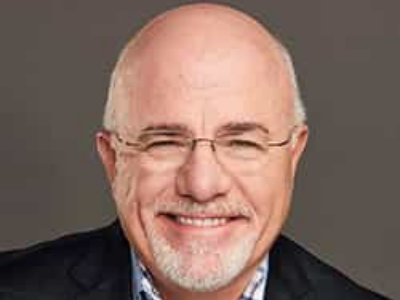Fishermen in Trinidad and Tobago fear for their lives and jobs after US strikes in the Caribbean
News > Politics & Government News

Audio By Carbonatix
8:33 AM on Monday, October 6
By ANSELM GIBBS
PORT-OF-SPAIN, Trinidad (AP) — On a recent afternoon, Kenrick Modie finished untangling his fishing net in a quiet Caribbean village.
As he slipped into a hammock at his home overlooking the sea, he worried that his life and livelihood could be wiped out by a U.S. military strike.
Modie lives in the Caribbean twin-island nation of Trinidad and Tobago, which is now entangled in a geopolitical face-off between the United States and Venezuela, just 11 miles away.
U.S. President Donald Trump, “is giving instructions to shoot and kill people,” Modie said about recent U.S. military strikes targeting suspected drug vessels in the Caribbean as it bulks up its military presence in the region. "What could we do? We’re just a little dot.”
His concerns heightened after Trump declared in a memo obtained by The Associated Press that the U.S. was in an “armed conflict” with drug cartels in the Caribbean, alleging they are trying to bring “deadly poison” to U.S. shores. And on Friday, Defense Secretary Pete Hegseth said he had ordered another strike on a small boat he accused of carrying drugs in the waters off Venezuela — the fourth since revelations that Trump told lawmakers he was treating drug traffickers as unlawful combatants.
Meanwhile, Venezuela has accused the U.S. of military buildup and aggression, prompting President Nicolás Maduro to place the country’s military and civilians willing to take up arms on high alert.
Stuck in the middle is Trinidad and Tobago, a nation with a multimillion-dollar fishing industry that employs thousands of fishermen who cast their nets almost daily to sustain themselves and their family.
Trinidad and Tobago’s Prime Minister Kamla Persad-Bissessar has said that drug cartels have contributed to pain and suffering in her country, and she has urged the U.S. to “kill them all violently.”
She also said she is willing to grant the U.S. access to Trinidad and Tobago, if needed, so Americans can defend Guyana from neighboring Venezuela, which has claimed two-thirds of Guyana as its own.
Maduro said that Persad-Bissessar’s willingness to grant such access is like declaring war against Venezuela. The Venezuelan president has called for a return to good relations with its Caribbean neighbor, even as Trinidad and Tobago’s government claims there’s no bad blood between the countries.
While those in authority trade words and military commanders ramp up their posturing, dozens of fishermen in Trinidad and Tobago feel their lives are at risk given the ongoing U.S. strikes and escalation of tensions with Venezuela.
“If we die, we die, that’s how this life is,” Modie said.
He fears being killed by a U.S. military strike while out fishing because he believes his boat could be mistaken for a drug-smuggling vessel. Modie said he hasn’t seen substantial evidence that those killed in the U.S. strikes were indeed transporting drugs. He also worries about innocent fishermen being killed and falsely labelled as narco-terrorists by authorities, with the dead men being unable to clear their names.
Only seven miles separate Trinidad and Venezuela at their closest point. On a clear day, Venezuela is visible from the village of Icacos, which is located on Trinidad’s southwestern tip.
Driving around Icacos and neighboring Cedros village, dozens of boats strewn along the shoreline show how heavily these communities depend on fishing.
Fishermen in these two villages say they are already under threat from pirates, and the military buildup at sea now adds yet another threat.
Watching three other fishermen unload their catch for the day at the Cedros Fishing Complex, Kamal Bikeran said his crew now stays in shallower waters and aren’t going as far out to sea as before, because of the tension involving the three countries.
“The U.S. has come there, and the Venezuelan military is saying they are more present, so you have to watch out,” Bikeran said. “At any point in time, outside there, you could be taken out.”
Forced to fish in shallower waters, Bikeran and other fishermen said the heightened regional tension is drying up their livelihoods, as they are now catching fewer fish.
Trump gave fishermen a reason to worry after the first U.S. military strike on Sept. 2, which he said killed 11 suspected narco-terrorists.
“Boat traffic is substantially down,” Trump said in early September. “I don’t even know about fishermen. They may say, ‘I’m not getting on the boat.’”
Two more fatal U.S. strikes have since followed. At least two of the three operations were carried out on vessels that originated from Venezuela, riling some Caribbean leaders.
Speaking at the United Nations General Assembly in late September, Caribbean leaders referred to the region as a zone of peace.
Barbados Prime Minister Mia Mottley appealed for dialogue to avoid a war between the U.S. and Venezuela. The prime minister of St. Vincent and the Grenadines, Ralph Gonsalves, described the foreign militarization of the waters near Venezuela as “exceedingly troubling.”
Fishing in fear has become the new reality, said Shyam Hajarie, who has been a fisherman for more than 40 years. The Cedros native, like others, depends on his daily catches to support his family. He’s unsure if the military buildup in the Caribbean would soon affect fish prices at the market.
“Just praying that everything works out with this situation with Venezuela and the U.S.,” he said. “That they make peace and not war.”
____
Follow AP’s coverage of Latin America and the Caribbean at https://apnews.com/hub/latin-america






